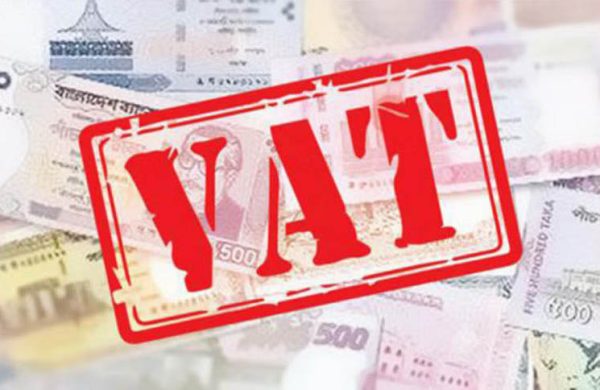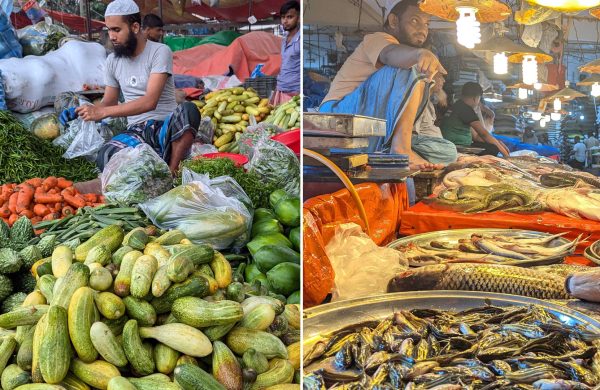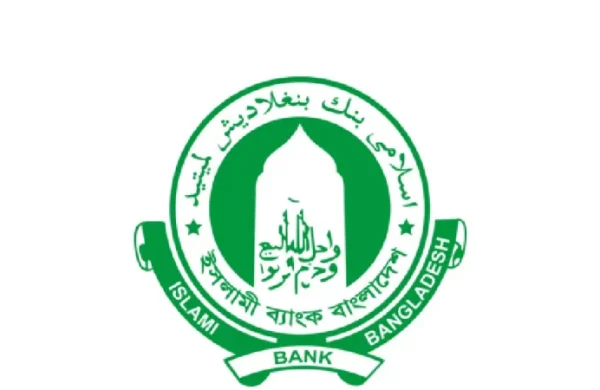69pc overwhelmed by ‘excessive’ VAT on essentials
- Update Time : Friday, May 30, 2025

Staff Correspondent:
About 69 percent of low-income people view the value-added tax (VAT) on essential items as excessive, according to a survey, with most seeing it as a significant financial burden.
Around 28 percent of respondents said the current VAT is tolerable, while 1 percent said it does not impact them. The remaining 2 percent did not comment.
The survey, conducted by the Youth Policy Network, collected responses from 1,022 low-income individuals, including night guards, security guards, deliverymen who use ride-sharing platforms, rickshaw pullers, farmers, and day labourers. It was conducted in 15 locations in and outside Dhaka.
Most respondents earned between Tk 10,000 and Tk 15,000 per month, followed by those in the Tk 5,000 to Tk 10,000 bracket.
The survey highlighted the growing economic hardships for the poor as rising prices and stagnant incomes eat away at their purchasing power.
The survey also found that a significant number of respondents felt the previous government’s budget did not reflect their needs, indicating disillusionment with past fiscal policies.
Against the backdrop of persistent inflation, hovering above nine percent since March 2023, these people appealed to the government to take appropriate measures in the upcoming budget to enable them to access affordable food.
The survey comes to light not only against the backdrop of persistent inflation but also during a period of economic slowdown and consequent job losses.
According to recent projections by the World Bank, overall poverty in Bangladesh could increase to 22.9 percent in 2025, up from 18.7 percent in 2022.
Alarmingly, the proportion of people living in extreme poverty — those earning less than $2.15 a day — is expected to nearly double to 9.3 percent, potentially pushing an additional 30 lakh individuals into this vulnerable group, the WB said.
THE GROUND REALITY: MEALS SKIPPED AMID SOARING COSTS
The effects of declines in real incomes were also apparent during the survey, which found that 60 percent of respondents were skipping breakfast to save money and time in the morning.
About 17 percent of respondents reported skipping lunch, often because of limited financial resources to purchase nutritious meals during the day.
Similarly, 17 percent skipped afternoon snacks, which are seen as less essential, especially when incomes are stretched thin.
At a tea stall in Kazir Dewri in the port city of Chattogram, rickshaw puller Anwar Hossain explained how he navigates rising costs. A basic meal at a restaurant now costs at least Tk 50 to Tk 60.
“If I want fish or chicken, it’s Tk 120 to Tk 150. So, I skip one meal and have tea with bread or biscuits instead,” he says, dunking a piece of bread into a steaming cup.
“I used to buy a bun for Tk 5 just a few years ago. Now it’s Tk 10 to Tk 12 and it’s smaller, too. Before, one bun was enough to fill me up. Now, even two leave me hungry,” he added.
He points out that tea, too, has become pricier. What once cost Tk 5 to Tk 7 now sells for Tk 10 to Tk 15.
Rahmat Mia, a security guard at a house in the capital’s Mirpur, said he could cover breakfast with just Tk 10 to Tk 12 two to three years ago.
But now that daily expense has risen to more than Tk 20. And it’s not enough to sate his hunger, he lamented.
Kayes Ali, a rickshaw puller in Rangpur district, echoed Anwar and Rahmat’s sentiments, reflecting the struggles faced by many low-income people across the country.
INCREASE SUBSIDIES AND ASSISTANCE, EXPERT SAYS
According to the survey, about 200 respondents advocated an increase in subsidies and assistance in the upcoming budget to alleviate the burden on struggling households.
This would ease the financial burden on low-income groups, ensuring that basic nutrition remains accessible.
There was also a call for greater taxation on the wealthy, with 193 respondents supporting measures to ensure a fairer distribution of resources.
KM Emrul Hasan, head of research at the Youth Policy Network, said this survey was conducted to gauge what low-income people expect from the upcoming budget.
He added that VAT on essential items consumed by low-income groups should be reduced in some cases and completely withdrawn in others.
He further said the focus should shift from imposing VAT on essential items to targeting luxury goods, promoting a more equitable and fair economic system for all.


















